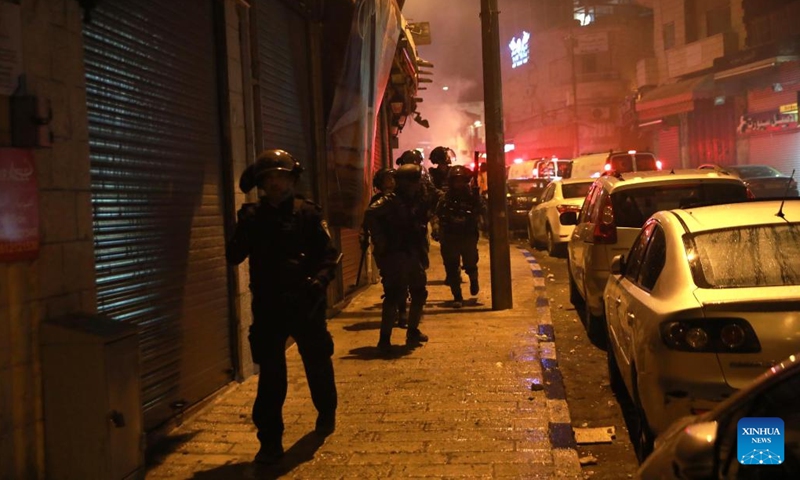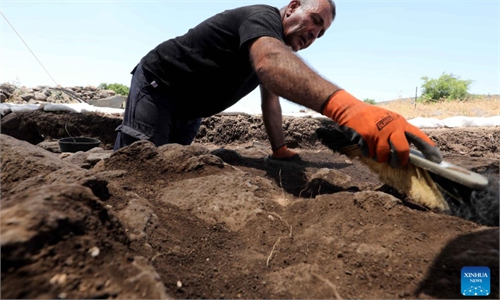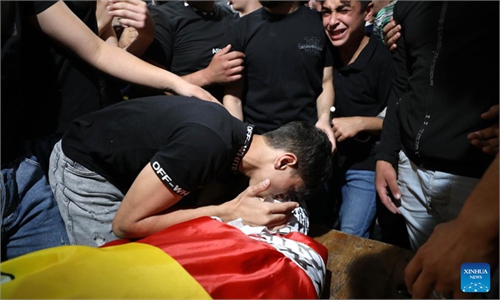Israel on high alert over ‘flag march’
The annual event sees crowds celebrate ‘Jerusalem Day’ known for clashes

Israeli police patrol during clashes with Palestinians in Jerusalem on May 16, 2022. Clashes erupted between Palestinians and Israeli police in East Jerusalem on Monday night as thousands gathered for the funeral of a young Palestinian who died after being injured in clashes with police in April.(Photo: Xinhua)
Jerusalem is bracing for a controversial “flag march” by Israelis on Sunday that has sparked warnings of a new escalation from Palestinian factions.
The “March of the Flags” threatens to exacerbate weeks of tensions between Israelis and Palestinians, and comes as Israel marks “Jerusalem Day,” commemorating the city’s unification following the capture of east Jerusalem in 1967.
Some 3,000 policemen are to be deployed ahead of the march, due to begin at 4 pm (1300 GMT).
Clashes surrounding the Jewish calendar date for Jerusalem Day in 2021 led to an 11-day conflict after Hamas fired rockets at Israel, prompting Israel to launch strikes in response.
The war cost the lives of 260 Palestinians, including 66 children, while 14 people were killed in Israel, including one child.
Hamas, the Palestinian Islamist movement that rules the blockaded Gaza Strip, warned last week against the march passing through the Al-Aqsa mosque compound, saying it would use “all possibilities” to confront them.
Israeli marchers are expected to enter the Old City via Damascus Gate, heavily used by Palestinians, before making their way to the Western Wall.
But Israeli authorities have not approved requests to enter the flashpoint Al-Aqsa compound.
The path of the march has never included Al-Aqsa.
The Al-Aqsa mosque compound is Islam’s third-holiest site, which is also the most holy site for Jews, who call it the Temple Mount.
By long-held convention, Jews are allowed to enter the compound but not to pray there.
On the eve of the march, Hamas called on Palestinians to gather at Al-Aqsa to “thwart the occupation’s Judaization schemes.”
Israeli Prime Minister Naftali Bennett has nonetheless confirmed the march would “take place according to the planned route, as it has for decades.”
The march has been described by leading Israeli daily Yediot Aharonot as a “personal test” for Bennett, marking a departure in strategy compared with that of his predecessor Benjamin Netanyahu.
Whereas Netanyahu chose a “noisy policy of capitulation” that ended with Hamas firing rockets at Israel, Bennett was adopting a “calm and calculated policy,” the daily said.
According to security analyst Shlomo Mofaz, Bennett was betting on the likelihood that “Hamas does not have any interest in another war.”
“The main policy of Hamas today is to encourage people inside Israel [to attack], while they continue to reconstruct the Gaza Strip,” added the former intelligence officer.
But there is another factor at play – Iran, the Jewish state’s arch-nemesis and a supporter of armed factions in Gaza.
AFP



